- Home
- Patricia Cornwell
Cruel and Unusual ks-4 Page 8
Cruel and Unusual ks-4 Read online
Page 8
4
Where are you?” I demanded, my eyes riveted to the number on the screen.
“East End, and it's coming down like a bitch,” Marino said. “We got a DOA. White female. At a glance appears to be your typical CO suicide, car inside the garage, hose hooked up to the exhaust pipe. But the circumstances are a little weird. I think you better come.”
“Where are you placing this call from?” I asked so adamantly that he hesitated. I could feel his surprise.
“The decedent's house. Just got here. That's the other thing. It wasn't secured. The back was unlocked.”
I heard the garage door. “Oh, thank God. Marino, hold on,” I said, flooded with relief.
Paper bags crackled as the kitchen door shut.
Placing my hand over the receiver, I called out, “Lucy, is that you?”
“No, Frosty the Snowman. You ought to see it coming down out there! It's awesome!”
Reaching for pen and paper, I said to Marino, “The decedent's name and address?”
“Jennifer Deighton. Two-one-seven Ewing.” I did not recognize the name. Ewing was off Williamsburg Road, not too far from the airport in a neighborhood unfamiliar to me.
Lucy walked into my study as I was hanging up the phone. Her face was rosy from the cold, eyes spark ling.
“Where in God's name have you been?” I snapped.
Her smile faded. “Errands.”
“Well, we'll discuss this later. I've got to go to a scene.”
She shrugged and returned my irritation. “So what else is new?”
“I'm sorry. It's not as if I have control over people dying.” Grabbing coat and gloves, I hurried out to the garage. I started the engine, buckled up, adjusted the heat, and studied my directions before remembering the automatic door opener attached to the visor. It's amazing how quickly an enclosed space will fill with fumes.
“Good God,” I said severely to no one but my own distracted self as I quickly opened the garage door.
Poisoning by motor vehicle exhaust is an easy way to die. Young couples necking in the backseat, engine running and heater on, drift off in each other's arms and never wake up. Suicidal individuals turn cars into small gas chambers and leave their problems for others to solve. I had neglected to ask Marino if Jennifer Deighton lived alone.
The snow was already several inches deep, the night lit up by it. There was no traffic in my neighborhood and very little when I got on the downtown expressway. Christmas music played nonstop on the radio as my thoughts flew in a riot of bewilderment and alighted, one by one, on fear. Jennifer Deighton had been calling my number and hanging up, or someone using her telephone had. Now she was dead. The overpass curved above the east end of downtown, where railroad tracks crisscrossed the earth like sutured wounds, and concrete parking decks were higher than many of the buildings. Main Street station hulked out of the milky sky, tile roof frosted white, the clock in its tower a bleary Cyclops eye.
On Williamsburg Road I drove very slowly past a deserted shopping center, and just before the city turned into Henrico County, I found Ewing Avenue. Houses were small, with pickup trucks and old model American cars parked out front. At the 217 address, police cars were in the drive and on both sides of the street. Pulling in behind Marino's Ford, I got out with my medical bag and walked to the end of the unpaved driveway where the single-car garage was lit up like a Christmas creche. The door was rolled up, police officers gathered inside around a beat-up beige Chevrolet. I found Marino squatting by the back door on the driver's side, studying a section of green garden hose leading from the exhaust pipe through a partially opened window. The interior of the car was filthy with soot, the smell of fumes lingering on the cold, damp air.
“The ignition's still switched on,” Marino said to me. “The car ran out of gas.”
The dead woman appeared to be in her fifties or early sixties. She was slumped over on her right side behind the steering wheel, the exposed flesh of her neck and hands bright pink. Dried bloody fluid stained the tan upholstery beneath her head. From where I stood, I could not see her face. Opening my medical bag, I got out a chemical thermometer to take the temperature inside the garage, and put on a pair of surgical gloves. I asked a young officer if he could open the car's front doors.
“We were just about to dust,” he said.
“I'll wait.”
“Johnson, how 'bout dusting the door handles so the doc here can get in the car.”
He fixed dark Latin eyes on me. “By the way, I'm Tom Lucero. What we got here is a situation that doesn't completely add up. To begin with, it bothers me there's blood on the front seat.”
“There are several possible explanations for that,” I said. “One is postmortem purging.”
He narrowed his eyes a little.
“When pressure in the lungs forces bloody fluid from the nose and mouth,” I explained.
“Oh. Generally, that doesn't happen until the person's started to decompose, right?”
“Generally.”
“Based on what we know, this lady's been dead maybe twenty-four hours and it's cold as a morgue fridge in here.”
“True,” I said. “But if she had her heater running, that in addition to the hot exhaust pouring in would have heated up the inside of the car, and it would have stayed quite warm until the car ran out of gas.”
Marino peered through a window opaque with soot and said, “Looks like the heater's pushed all the way to hot.”
“Another possibility,” I continued, “is that when she became unconscious, she slumped over, striking her face on the steering wheel, the dash, the seat. Her nose could have bled. She could have bitten her tongue or split her lip. I won't know until I examine her.”
“Okay, but how about the way she's dressed?”
Lucero said. “Strike you as unusual that she'd walk out in the cold, come inside a cold garage, hook up the hose, and get into a cold car with nothing but a gown on?”
The pale blue gown was ankle-length, with long sleeves, and made of what looked like a flimsy synthetic material. There is no dress code for people who commit suicide. It would have been logical for Jennifer Deighton to put on coat and shoes before venturing outside on a frigid winter night. But if she had planned to take her life, she would have known she would not feel the cold long.
The ID officer had finished dusting the car doors. I retrieved the chemical thermometer. It was twenty-nine degrees inside the garage.
“When did you get here?” I asked Lucero.
“Maybe an hour and a half ago. Obviously, it was warmer in here before we opened the door, but not much. The garage isn't heated. Plus, the car hood was cold. I'm guessing the car ran out of gas and the battery went dead a number of hours before we were called.”
Car doors opened and I took a series of photographs before going around to the passenger's side to look at her head. I braced myself for a spark of awareness, a detail that might ignite some long-buried memory. But there was not the faintest glimmer. I did not know Jennifer Deighton. I had never seen her before in my life.
Her bleached hair was dark at the roots and tightly wound in small pink curlers, several of which had been displaced. She was grossly overweight; though I could tell from her refined features that she may have been quite pretty in a younger, leaner life. I palpated her head and neck and felt no fractures. I placed the back of my hand against her cheek, then struggled to turn her. She was cold and stiff, the side of her face that had been resting against the seat, pale and blistered from the heat. It did not appear that her body had been moved after death, and the skin did not blanch when pressed. She had been dead at least twelve hours.
It wasn't until I was ready to bag her hands that I noticed something under her right index fingernail. I got out a flashlight for a better look, then retrieved a plastic. evidence envelope and a pair of forceps. The tiny fleck of metallic green was embedded in the skin beneath the nail. Christmas glitter, I thought. l -also found fibers of a gold tint, and as
I studied each of her fingers I found more. Slipping the brown paper bags over her hands and securing them at the wrists with rubber bands, I went around to the other side of the car. I wanted to look at her feet. Her legs were fully rigorous and uncooperative as I pulled them free of the steering wheel and positioned them on the seat. Examining the bottoms of her thick dark socks, I found fibers clinging to the wool that looked similar to the ones I had noticed under her fingernails. Absent was dirt, mud, or grass. An alarm was sounding in the back of my mind.
“Find anything interesting?” Marino asked.
“You found no bedroom slippers or shoes nearby?” I said.
“Nope,” Lucero answered. “Like I told you, I thought it unusual she walked out of the house on a cold night with nothing but-”
I interrupted. “We've got a problem. Her socks are too clean.”
“Shit,” Marino said.
“We need to get her downtown.”
I backed away from the car.
“I'll tell the squad,” Lucero volunteered.
“I want to see the inside of her house,” I said to Marino.
“Yeah.”
He had taken his gloves off and was blowing on his hands. “I want you to see it, too.”
While I waited for the squad, I moved about the garage, careful where I stepped and keeping out of the way. There wasn't much to see, just the usual clutter of items needed for the yard and odds and ends that had no other proper storage place. I scanned stacks of old newspapers, wicker baskets, dust'. cans of paint, and a rusty charcoal grill that I doubted had been used in years. Sloppily coiled in a corner like a headless green garter snake was the hose from which the segment attached to the exhaust pipe appeared to have been cut. I knelt near the severed end without, touching it. The plastic rim did not look sawn but severed at an angle by one hard blow. I spotted a linear cut in the cement floor nearby. Getting to my feet, I surveyed the tools hanging from a pegboard. There was an ax and a maul, both of them rusty and festooned with cobwebs.
The rescue squad was coming in with its stretcher and body pouch.
“Did you find anything inside her house that she might have used to cut the hose?” I asked Lucero.
“No.”
Jennifer Deighton did not want to come out of the car, death resisting the hands of life. I moved to the passenger's side to help. Three of us secured her under the arms and waist while an attendant pushed her legs. When she was zipped up and buckled in, they carried her out into the snowy night and I trudged with Lucero along the driveway, sorry that I'd not taken the time to put on boots. We entered the ranch-style brick house through a back door that led into the kitchen.
It looked recently renovated, appliances black, counters and cabinets white, the wallpaper an Oriental pattern of pastel flowers against delicate blue. Heading toward the sound of voices, Lucero and I crossed a narrow hallway with a hardwood floor and stopped at the entrance of a bedroom where Marino and an 1D officer were going through dresser drawers. For a long moment, I looked around at the peculiar manifestations of Jennifer Deighton's personality. It was as if her bedroom were a solar cell in which she captured radiant energy and converted it into magic. I thought again of the hang ups I had been sitting, my paranoia growing by leaps and bounds.
Walls, curtains, carpet, linens, and wicker furniture were white. Oddly, on the rumpled bed not far from where both pillows were propped against the headboard a crystal pyramid anchored a single blank sheet of white typing paper. On the dresser and beside tabletops were more crystals, with smaller ones suspended from window frames. I could imagine rainbows dancing in the room and light glancing off prismatic glass when the sun poured in.
“Weird, huh?” Lucero asked.
“Was she a psychic of some sort?” I asked.
“Let's put it this way, she had her own business, most of it carried out right there.”
Lucero moved loser to an answering machine on a table by the bed. The message light was flashing, the number thirty-eight glowing red.
“Thirty-eight messages since eight o'clock last night,” Lucero added. “I've skipped through a few of 'em. The lady was into horoscopes. Looks like people would call to find out if they were going to have a good day, win the lottery, or be able to pay off their charge cards after Christmas.”
Opening the cover of the answering machine, Marino used his pocket knife to flip out the tape, which he sealed inside a plastic evidence envelope. I was interested in several other items on the small bedsides table and moved closer to take a look. Next to a notepad and pen was a glass with an inch of clear liquid inside it. I bent close, smelling nothing. Water, I thought. Nearby were two paperback books, Pete Dexter's Paris Trout and Jane Roberts's Seth Speaks. I saw no other books in the bedroom.
“I'd like to take a look at these,” I said to Marino.
“Paris Trout, “ he mused. “What's it about, fishing in Prance?”
Unfortunately, he was serious.
“They might tell me something about her state of mind before she died,” I added.
“No problem. I'll have Documents check them for prints, then hand them over to you. And I think we'd better have Documents take a look at the paper, too,” he added, referring to the sheet of blank paper on the bed.
“Right,” Lucero said drolly. “Maybe she wrote a suicide note in disappearing ink.
“Come “Come on,” Marino said to me. “I want to show you a couple things.”
He took me into the living room, where an artificial Christmas free cowered in a corner, bent from copious gaudy ornaments and strangled by tinsel, lights, and angel hair. Gathered near its base were boxes of candy and cheeses, bubble bath, a glass jar of what looked like spiced tea, and a ceramic unicorn with blazing blue eyes and gilded horn. The gold shag carpet, I suspected, was the origin of the fibers I had noticed on the bottom of Jennifer Deighton's socks and under her fingernails.
Marino slipped a small flashlight from a pocket and squatted.
“Take a look,” he said.
I got down beside him as the beam of light illuminated metallic glitter and a bit of slender gold cord in the deep pile of the carpet around the base of the tree.
“When I got here, the first thing I checked was to see if she had any presents under the tree,” Marino said, switching the flashlight off. “Obviously, she opened them early. And the wrapping paper and cards got disposed of right over there in the fireplace - it's full of paper ash, some pieces of foil-type paper still unburned. The lady across the street says she noticed smoke coming out of the chimney right before it got dark last night.”
“Is this neighbor the one who called the police?” I asked.
“Yeah.”
“Why?”
“That I'm not clear on. I got to talk to her.”
“When you do, see if you can find. out anything about this woman's medical history, if she had psychiatric problems, et cetera. I'd like to know who her physician is.
“I'm going over there in a few minutes. You can came with me and ask her yourself.”
I thought of Lucy waiting for me at home as I continued taking in details. In the center of the room, my eyes stopped at four small square indentations in the carpet.
“I noticed that, too,” Marino said. “Looks like someone brought a chair in here, probably from the dining room. There's four chairs around the dining room table. All of 'em have square legs.”
“Another thing you might consider doing,” I thought out loud, “is checking her VCR. See if she had programmed it to record anything. That might tell us something more about her, too.”
“Good idea.” We left the living room, passing through the small dining room with an oak table and four straight-backed chairs. The braided rug on the hardwood floor looked either new or rarely walked on.
“Looks like the room she pretty much lived in was this one,” Marino said as we crossed a hallway and entered what clearly was her office.
The room was crammed with the paraphernal
ia needed to run a small business, including a fax machine, which I investigated immediately. It was turned off, the line connected to it plugged into a single jack in the wall. I looked around some more as my mystification grew. A personal computer, postage machine, various forms, and envelopes crowded a table and the desk Encyclopedias and books on parapsychology, astrology, zodiac signs, and Eastern and Western religions lined bookcases. I noted several different translations of the Bible and dozens of ledgers with dates written on the spines.
Near the postage machine was a stack of what appeared to be subscription forms, and I picked up one. For three hundred dollars a year, you could call as often as once a day and Jennifer Deighton would spend up to three minutes telling you your horoscope “based on personal details, including the Alignment of the planets at the moment of your birth.”
For an additional two hundred dollars a year, she would throw in “a weekly reading.”
Upon payment of the fee, the subscriber would receive a card with an identification code that was valid only as long as the annual fee continued to be paid.
“What a lot of horseshit,” Marino said to me.
“I'm assuming she lived alone.”
“That's the way it's looking so far. A woman alone running a business like this - a damn good way to attract the wrong person.”
“Marino, do you know how many telephone lines she has?”
“No. Why?”
I told him about the hang ups I had been getting while he stared hard at me. His jaw muscles began to flex. “I need to know if her fax machine and phone are on the same line,” I concluded.
“Jesus Christ.”
“If they are and she happened to have her fax machine turned on the night I dialed back the number that appeared on my Caller ID screen,” I went on, “that would explain the tone I heard.”
'Jesus friggin' Christ,” he said, snatching the portable radio out of his coat pocket. “Why the hell didn't you cell me this before?”
“I didn't want to mention it when others were around.”
He moved the radio close to his lips. “Seven-ten.”

 Blow Fly
Blow Fly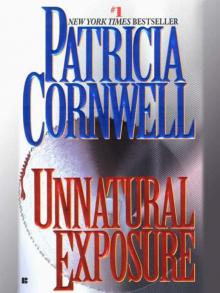 Unnatural Exposure
Unnatural Exposure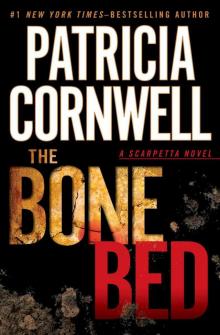 The Bone Bed
The Bone Bed Book of the Dead
Book of the Dead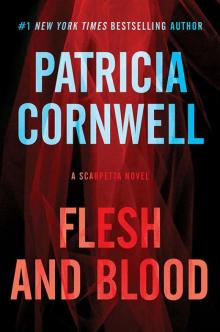 Flesh and Blood: A Scarpetta Novel (Scarpetta Novels Book 22)
Flesh and Blood: A Scarpetta Novel (Scarpetta Novels Book 22)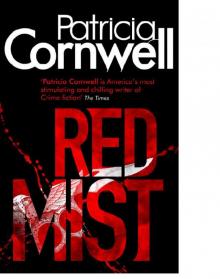 Red Mist
Red Mist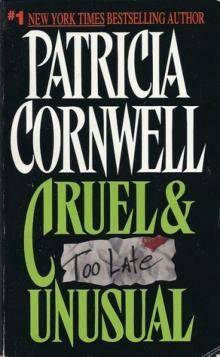 Cruel & Unusual
Cruel & Unusual Hornet's Nest
Hornet's Nest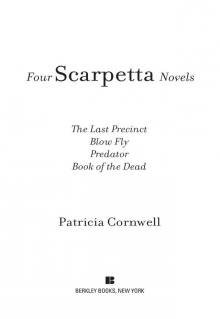 Four Scarpetta Novels
Four Scarpetta Novels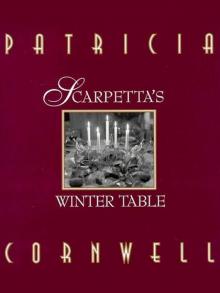 Scarpetta's Winter Table
Scarpetta's Winter Table Isle of Dogs
Isle of Dogs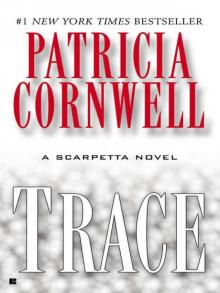 Trace
Trace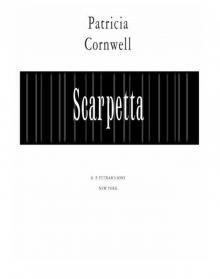 Postmortem
Postmortem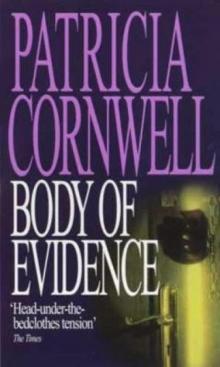 Body of Evidence ks-2
Body of Evidence ks-2 Southern Cross
Southern Cross All That Remains
All That Remains Point of Origin
Point of Origin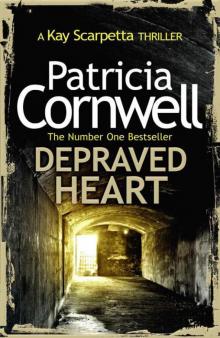 Depraved Heart
Depraved Heart Ruth, a Portrait: The Story of Ruth Bell Graham
Ruth, a Portrait: The Story of Ruth Bell Graham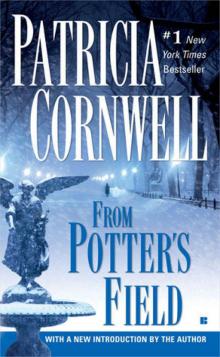 From Potter's Field
From Potter's Field Flesh and Blood
Flesh and Blood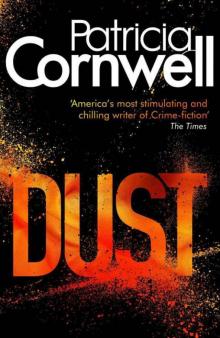 Dust
Dust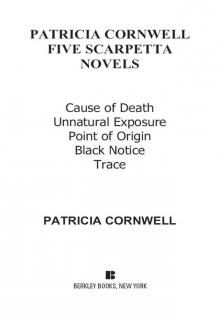 The Body Farm
The Body Farm Port Mortuary
Port Mortuary Quantum
Quantum Portrait of a Killer: Jack the Ripper - Case Closed
Portrait of a Killer: Jack the Ripper - Case Closed Spin (Captain Chase)
Spin (Captain Chase)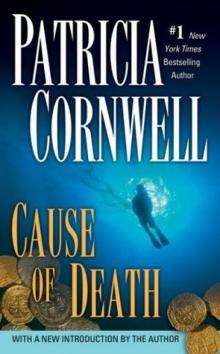 Cause of Death
Cause of Death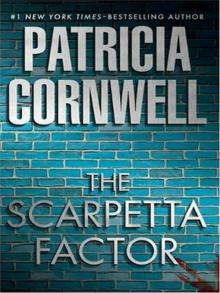 The Scarpetta Factor
The Scarpetta Factor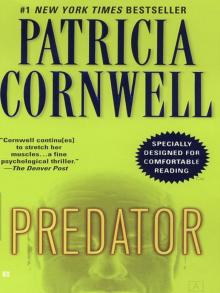 Predator
Predator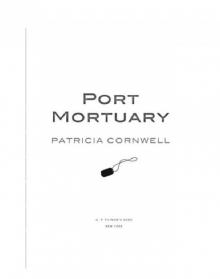 Scarpetta 18 - Port Mortuary
Scarpetta 18 - Port Mortuary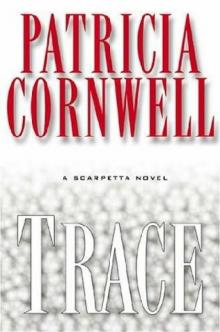 Trace ks-13
Trace ks-13 Portrait of a Killer
Portrait of a Killer Cruel and Unusual ks-4
Cruel and Unusual ks-4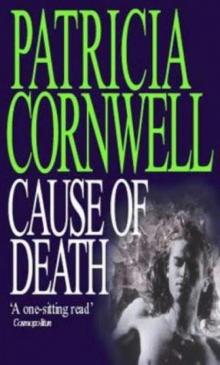 Cause Of Death ks-7
Cause Of Death ks-7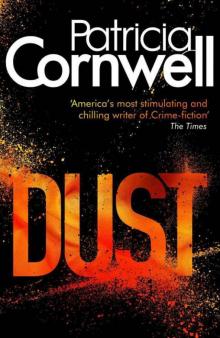 Dust ks-21
Dust ks-21 At Risk wg-1
At Risk wg-1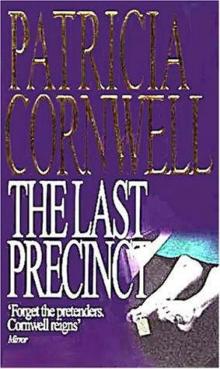 The Last Precinct ks-11
The Last Precinct ks-11 Book of the Dead ks-15
Book of the Dead ks-15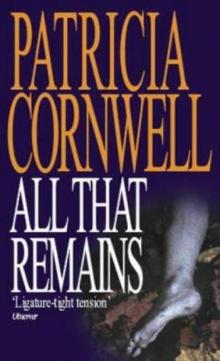 All That Remains ks-3
All That Remains ks-3 Ruth, a Portrait
Ruth, a Portrait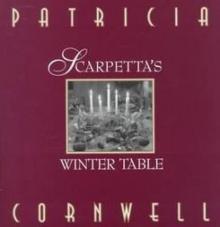 Scarpetta's Winter Table (kay scarpetta)
Scarpetta's Winter Table (kay scarpetta) From Potter's Field ks-6
From Potter's Field ks-6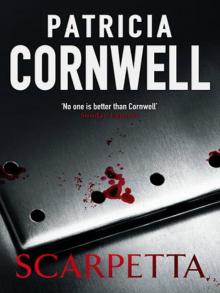 Scarpetta
Scarpetta Isle of Dogs jhabavw-3
Isle of Dogs jhabavw-3 Hornet's Nest jhabavw-1
Hornet's Nest jhabavw-1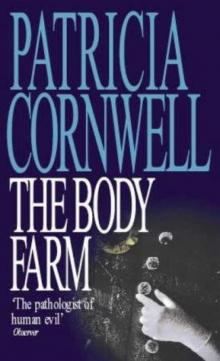 The Body Farm ks-5
The Body Farm ks-5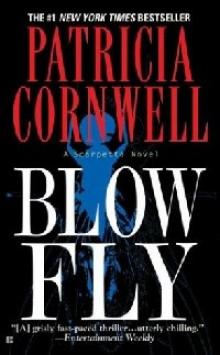 Blow Fly ks-12
Blow Fly ks-12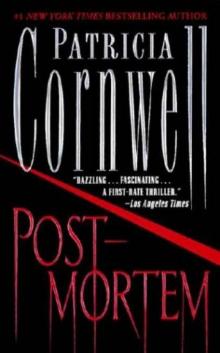 Post Mortem
Post Mortem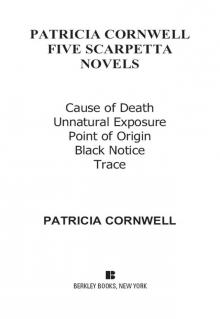 Five Scarpetta Novels
Five Scarpetta Novels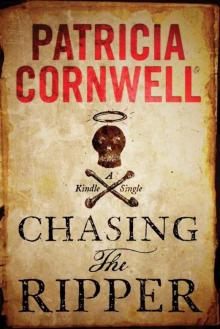 Chasing the Ripper (Kindle Single)
Chasing the Ripper (Kindle Single) Point of Origin ks-9
Point of Origin ks-9 Port Mortuary (2010)
Port Mortuary (2010)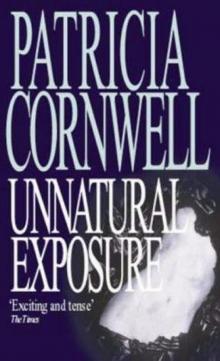 Unnatural Exposure ks-8
Unnatural Exposure ks-8 Southern Cross uhabavw-2
Southern Cross uhabavw-2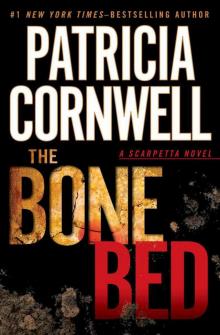 The Bone Bed ks-20
The Bone Bed ks-20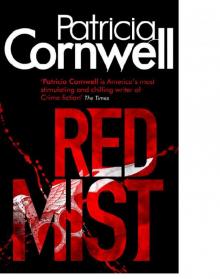 Red Mist ks-19
Red Mist ks-19 Port Mortuary (2010) ks-18
Port Mortuary (2010) ks-18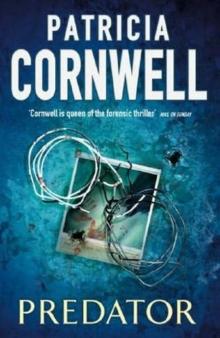 Predator ks-14
Predator ks-14